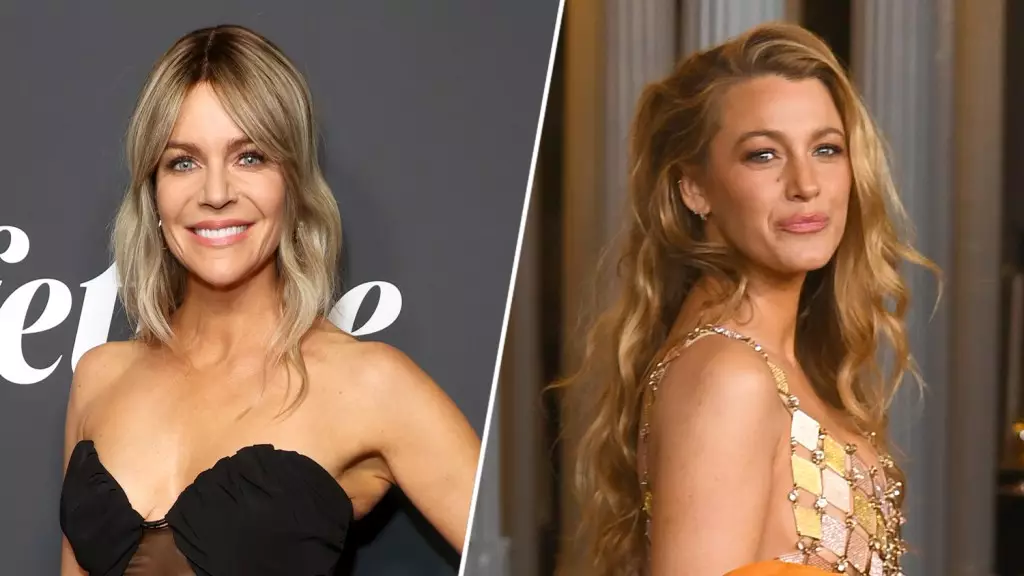The entertainment industry has become a spotlight for discussions about workplace ethics and the consequences of misconduct. Recent allegations made by actress Blake Lively against director and co-star Justin Baldoni have ignited a significant public outcry, showcasing the complexities of navigating accusations within the film community. This article delves into the events surrounding these allegations, the reactions they have sparked, and the broader implications for the industry.
Blake Lively’s accusations against Justin Baldoni have profoundly affected both their careers and public perceptions. In a complaint filed with the California Civil Rights Department, Lively voiced troubling experiences on the set of “It Ends with Us,” including claims of sexual harassment and a toxic work environment. The allegations extend beyond personal grievances, suggesting a systematic effort to damage Lively’s reputation orchestrated by Baldoni and his production company, Wayfarer Studios.
As Lively detailed her experiences, she identified numerous instances of harassment and retaliation. The dramatic nature of the accusations not only raises questions about Baldoni’s conduct but also highlights the vulnerabilities faced by women in the film industry who speak out against powerful figures. In her statements, Lively expressed hope that her legal action would deter such retaliatory tactics and protect future whistleblowers.
The fallout from Lively’s allegations has drawn a wave of support from fellow actors and actresses. Notably, Kaitlin Olson publicly backed Lively, praising her character and highlighting the importance of empathy and understanding for those who come forward with claims of misconduct. Olson’s solidarity is crucial, as it reinforces the message that collective support can help counteract the intimidation often faced by victims of workplace harassment.
The case has also revealed connections among actors, directors, and the institutions they represent. Lively’s husband, Ryan Reynolds, and Olson’s spouse, Rob McElhenney, are connected through their co-ownership of the Welsh football club Wrexham A.F.C., creating a spiderweb of relations that complicates the narrative. The presence of these well-known figures adds layers of interest and scrutiny to the case, as public figures take sides on a highly publicized dispute within the industry.
As the accusations escalate, the legal implications are significant. Baldoni’s denial of the allegations through his lawyer, Bryan Freedman, has set the stage for an impending legal battle. Freedman has described the claims as “false, outrageous, and intentionally salacious,” indicating a high-stakes confrontation is on the horizon. The mention of a potential countersuit by Baldoni adds even more tension to the situation, suggesting that both parties are prepared to engage in a protracted battle not only in the courts but also in the court of public opinion.
Furthermore, the involvement of Stephanie Jones—a former public relations specialist for Baldoni—who is now suing him adds another layer to the legal complexities. Allegations of defamation and breach of contract illustrate the tangled web of professional relationships that can fracture under the weight of such serious accusations.
This incident underscores a critical moment for the film industry, emphasizing the need for accountability, transparency, and a commitment to creating safer workplaces. The repercussions could extend beyond the individuals involved, potentially reshaping Hollywood’s approach to not only handling accusations but also fostering a supportive environment for those who dare to speak out.
As this case unfolds, it invites a broader dialogue about the dynamics of power within the industry. The consequences faced by those who choose to speak against powerful individuals can be daunting, but instances like Lively’s shed light on the importance of solidarity and the urgency of reforming how accusations of misconduct are managed.
Ultimately, the ripple effects of these allegations will be felt for some time. The hearts and minds of audiences, fellow artists, and industry leaders are shifting, each eager to see how Lively’s bravery in speaking out can inspire others to break the silence surrounding workplace misconduct, crafting a new narrative for future generations in Hollywood.

